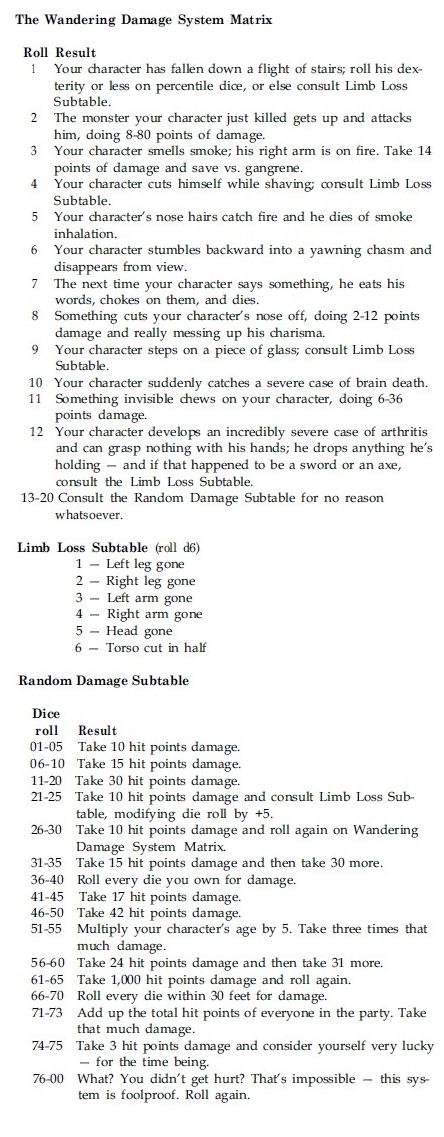It is a vast oversimplification, I agree. But in key ways it was much more lethal than 3E and beyond (though each of those editions I think have their own areas where lethality can kick in). Early levels in AD&D definitely can be a lot more lethal than later editions I think (you just have more mages walking around with almost no HP), the GM wasn't as bound by things like the CR system, etc. But things like level drain, save versus death, etc all these random things that could kill or radically mess up your character were more prevalent. I also think there was a culture of play that was different (by the time 3E rolled around, the idea that you only allowed PCs to die when they did something stupid, which I remember encounter during 2E, had just become a more baseline assumption for many of the groups I was in). That said I don't think this is a strictly AD&D 1e thing. The lethality of the system was similar across 1 and 2e, but the culture of play changed a lot in the 90s to focus more on storylines, and I do remember that being when your character randomly dying was not always as accepted by every gaming group. My overall impression, and it would be interesting if someone actually tried to quantify this to see if it is accurate, is the D&D system has become more forgiving over time. However, it has always been a game where characters eventually have enough HP that they can soak up damage and dungeon crawl (when I have play tested new systems one thing I realized right away is how much that matters if you want dungeon crawls to be viable---at some point characters need sufficient health that they can have more than 1-3 encounters in a delve). So it isn't like classic D&D was this super gritty thing.
It has also come in waves as with anything. If you go outside D&D, or even just look at some D&D clones, there are games out there that boost the lethality.



